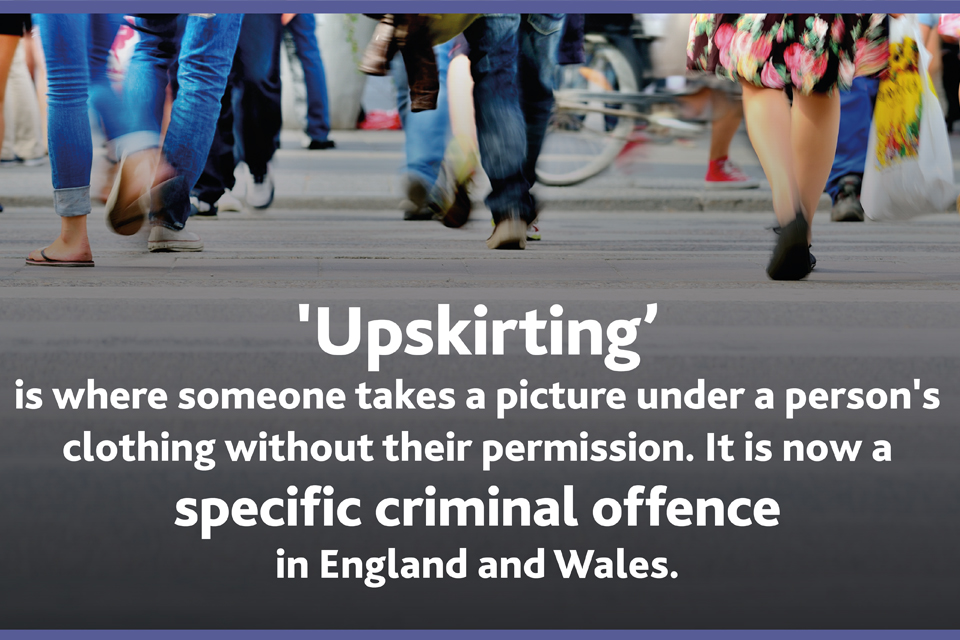Upskirting: know your rights
There is a lot in the news about 'upskirting' - find out what it's all about and why the law has changed.

What is upskirting?
Upskirting is a highly intrusive practice, which typically involves someone taking a picture under another person’s clothing without their knowledge, with the intention of viewing their genitals or buttocks (with or without underwear).
Upskirting is where someone takes a picture under a person’s clothing without their permission. It is now a specific criminal offfence in England and Wales.
It can take place in a range of places, eg British Transport Police have seen a rise of reports on public transport.
The new law will capture instances where the purpose of the behaviour is to obtain sexual gratification, or to cause humiliation, distress or alarm.
Anyone, and any gender, can be a victim and this behaviour is completely unacceptable.

What effect can upskirting have on victims?
Upskirting is distressing and a humiliating violation of privacy for victims.
We want victims to know and be confident that reports to the police will be taken seriously.
Gina Martin’s story on ‘upskirting’
What punishment can upskirting perpetrators face under the new law?
Perpetrators will face two years in prison. By criminalising this distressing practice, it is hoped that it deters people from committing the crime.
Upskirting, where committed to obtain sexual gratification, can result in the most serious offenders being placed on the sex offenders register.
The new law will send a clear message that such behaviour is criminal and will not be tolerated.
What can victims of upskirting do?
If you’re a victim of upskirting, the police and other organisations are there to help you.
Please don’t suffer in silence, seek support. You may want to speak to someone you already know and trust, or get in touch with a charity.
It’s important to know your rights after a crime has taken place, the police will be able to talk you through this.
Victims of upskirting will be entitled to automatic protection, eg from being identified in the media (so they won’t be able to publish any identifying details such as names, addresses or photos).
‘Upskirting’ - why the law had to change
Why has the law changed?
Upskirting has not gone unpunished in England and Wales - depending on the circumstances it has already prosecuted under the common law offence of outraging public decency.
However, following concerns expressed by victims, a review of the law found that the existing criminal law may not have been able to capture all instances.
The Voyeurism (Offences) Act, which was commonly known as the Upskirting Bill, was introduced on 21 June 2018. It came into force on 12 April 2019.